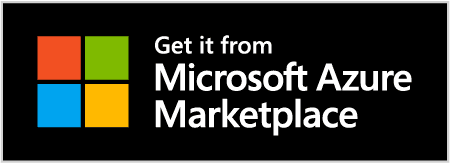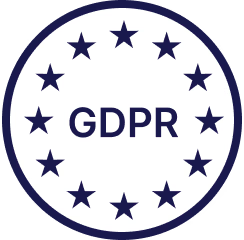Social Engineering
According to the Bangko Sentral ng Pilipinas (BSP), card fraud is the most rampa...
According to the Bangko Sentral ng Pilipinas (BSP), card fraud is the most rampant cybercrime in the Philippines. From stolen card details to sophisticated scams, criminals are constantly finding new ways to exploit vulnerabilities. With digital transactions becoming increasingly preferred, protecting yourself and ensuring [secure online credit card transactions](https://www.mayabank.ph/creditcard/) has never been more crucial.
Whether shopping for groceries or booking a flight, using credit cards is part of everyday life for many modern Filipino consumers. While it’s easy to focus and get excited about rewards, cashbacks, and promos, you should also pay as much attention to learning about security features designed to safeguard your financial information.
Understanding key security terms is an excellent first step, as it helps you take control of your card’s safety, minimize risks, and use your credit card with confidence. Here are some essential security concepts to help you get started.
### EMV Chip Technology
Swiping your card is becoming a thing of the past, thanks to the security of EMV chip technology. Unlike magnetic stripes, which can be easily skimmed to steal data, EMV chips generate a unique transaction code for each purchase, making it much harder for fraudsters to clone your card or use stolen data for unauthorized transactions.
Most merchants now use chip-enabled terminals to prevent fraud; however, EMV chips don’t offer the same protection for online purchases. To stay secure, always use trusted websites, enable multi-factor authentication, and monitor your statements for suspicious activity. While EMV technology has made card-present fraud less common, understanding its limitations helps protect your credit card in all types of transactions.
### Card Verification Value or Code
That three-digit code on the back of your card does more than you might think. Called the card verification value (CVV) or card verification code (CVC), this number adds an extra layer of security by ensuring that only the cardholder can complete card-not-present transactions, such as online or phone purchases. Since merchants are prohibited from storing CVVs, even if hackers steal payment details, they cannot easily use them for unauthorized transactions.
It’s important to note that a CVV is different from a PIN. While a PIN authorizes in-person transactions and ATM withdrawals, a CVV is meant to prevent fraud in online or remote purchases. To enhance security, avoid sharing your CVV, store your card details securely, and use virtual card numbers when available. Taking these precautions can help prevent unauthorized use of your credit card.
You may also want to look for a card like the Landers Cashback Everywhere credit card by Maya, which comes with a dynamic CVV. A dynamic CVV is only valid and changes every time the card details are opened through the Maya app. This way, even if your card details get compromised, you still have an extra layer of security working to protect your account.
### Multi-Factor Authentication
A password alone isn’t always enough to keep your credit card secure, so make sure to activate multi-factor authentication (MFA) to add an extra layer of protection. With MFA, logging into your banking app or completing a transaction requires not just your password but also an additional verification step, such as a one-time code sent via SMS, email, or an authentication app. This makes it much harder for cybercriminals to access your account, even if they steal your password.
Many financial institutions now require MFA for online transactions and account access, especially for high-value purchases. While SMS-based codes offer some security, authentication apps like Google Authenticator or bank-provided security tokens provide stronger protection. Enabling MFA wherever possible significantly reduces the risk of unauthorized access, giving you greater control over your credit card’s security.
Do note that 2FA or two-factor authentication is a subset of MFA. With 2FA, you are only required to add one type of authentication method; with MFA, you need to provide two or more (e.g., email, SMS, fingerprint, or location verification, among others).
### Zero Liability Protection
Worried about fraudulent charges? Zero liability protection ensures you won’t be held responsible for unauthorized transactions, such as purchases you didn’t make or transactions resulting from a lost or stolen card—provided you report them promptly. This policy protects cardholders from financial losses due to fraud, making it one of the most important security benefits of credit cards.
However, zero liability isn’t automatic. Card issuers typically require you to report suspicious activity within a specified timeframe. If you wait too long, your protection may be limited. Additionally, this coverage doesn’t apply if you knowingly share your card details or act negligently. To maximize safeguards, monitor your transactions regularly through your statements or your card issuer’s accompanying mobile app and enable fraud alerts. While zero liability protection provides peace of mind, staying vigilant ensures you catch fraudulent activity before it becomes a bigger problem.
### Skimming and Card Cloning
Not all fraud happens online—skimming and card cloning remain serious threats in physical transactions. Skimming occurs when criminals install hidden devices on ATMs, gas pumps, or point-of-sale terminals to steal your card’s data. Once obtained, this data is used to create a cloned card for fraudulent purchases.
To protect yourself, always inspect card readers for loose or unusual attachments, cover the keypad when entering your PIN, and use ATMs in well-lit, high-traffic areas. Many banks now offer contactless payments and virtual card numbers, which further reduce the risk of skimming. You can also enable real-time transaction alerts to catch unauthorized charges early. Understanding these tactics can help keep your credit card safe from cloning attempts.
### Phishing and Social Engineering
Not all fraud involves high-tech gadgets. Sometimes, scammers rely on deception. For instance, phishing and social engineering are tactics used to trick you into revealing sensitive information, often by posing as a trusted entity like your bank or a well-known retailer. Fraudsters may send fake emails, texts, or calls urging you to verify account details, reset passwords, or confirm suspicious transactions.
Stay vigilant. Never click on unexpected links or provide personal information over the phone. If you receive a suspicious request, contact your bank directly using the official number. Many banks also offer email filtering and fraud monitoring to help detect scams. Being cautious and verifying requests before acting can prevent you from becoming a victim of these increasingly sophisticated schemes.
As a credit card owner, learning how to make the most of your card’s benefits is not enough—you also need to know how to keep your transactions secure. Start by understanding these key security terms to spot potential threats, take preventive measures, and protect your financial details. By staying informed and applying prudent security practices, you can enjoy the convenience of credit cards without worries.






